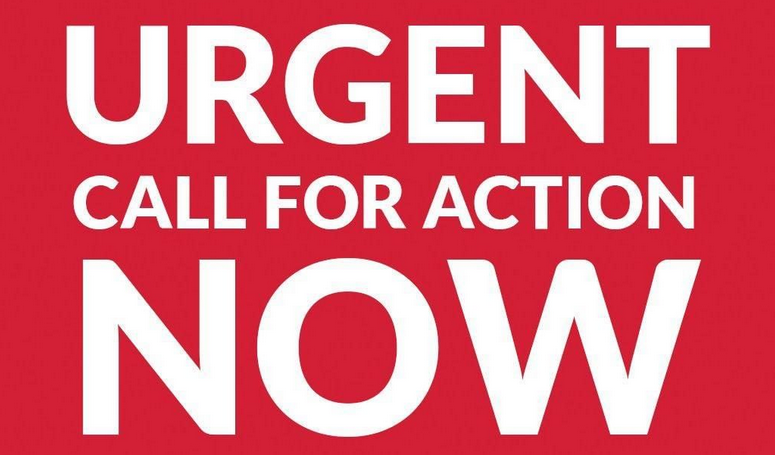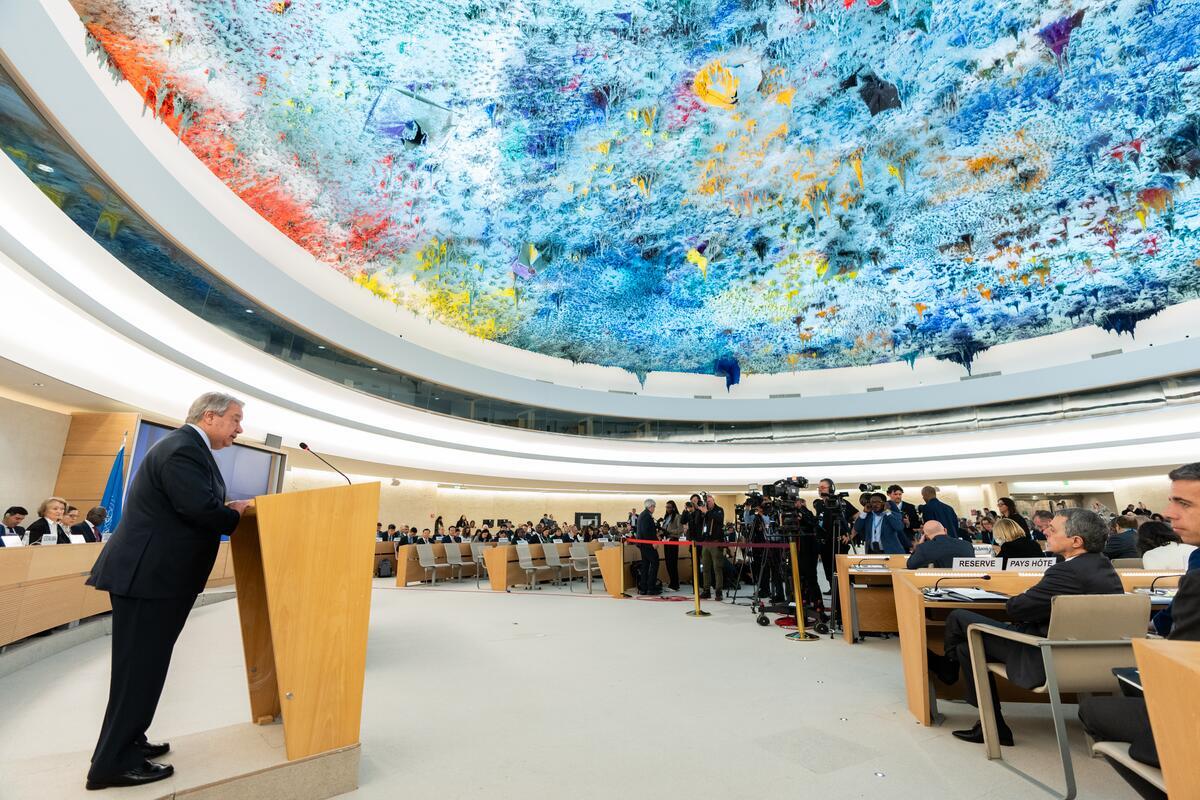Racist violence, by police and other officials is systemic, historical, deep rooted and has existed with impunity in the United States of America and elsewhere. Structural racism and white supremacy are manifesting in lethal ways: Breonna Taylor was murdered in her sleep by police officers. Another police officer pushed his knee onto George Floyd’s neck until he drew his last breath. These were not isolated incidents, but are rather several of the many incarnations of racism.
Given this context, and given the lack of accountability following these killings, the Human Rights Council held an urgent debate yesterday and this morning focusing on the “current racially inspired human rights violations, systemic racism, police brutality and the violence against peaceful protest”. The debate is to be resumed tomorrow or Monday.
What is the urgent debate about?
The urgent debate, proposed by the Africa Group was agreed to by the UN Human Rights Council (HRC) through consensus. Urgent debates are initiated for situations that need immediate attention and response by the HRC.
Alongside the debate, the Africa Group tabled a resolution requesting the Council to appoint an independent commission of inquiry “to establish facts and circumstances related to the systemic racism, alleged violations of International Human Rights Law and abuses against Africans and of People of African Descent in the United States of America and other parts of the world recently affected, by law enforcement agencies, especially those incidents that resulted in the deaths of Africans and of People of African Descent; with a view to bringing perpetrators to justice.”
This move also aligns with the call made by the families of George Floyd, Breonna Taylor, Philando Castile and Michael Brown and over six hundred human rights organisations from over 60 countries in requesting the Council to mandate a commission of inquiry for the situation of racism and police brutality in the United States.
The UN Special Rapporteur on contemporary forms of racism, racial discrimination, xenophobia and related intolerance and the UN Working Group on Experts on People of African Descent have also voiced their support for the Urgent Debate and an international commission of inquiry. They have urged the Human Rights Council to ensure the following outcomes from the debate: (1) the creation of an international commission of inquiry to investigate systemic racism in law enforcement in the United States; and (2) the creation of a thematic international commission of inquiry to investigate systemic racism in law enforcement globally, with a focus on systemic racism rooted in legacies of colonialism and transatlantic slavery. They stressed that “both measures described above are necessary and cannot be substituted for one another”.
What is a commission of inquiry?
UN commissions of inquiry are international investigative bodies that are designed to look into serious situations of violations of international human rights law. They collect information, establish the facts and can play an important role in promoting accountability for past violations and preventing future violations.
As stated by the Special Rapporteur on racism wrote in an op-ed: “The point is not that an international commission of inquiry will solve the problem of systemic racism in law enforcement in the United States. Instead, it is that victims of systemic racism in the United States, who face the daily, unabated and genuine risk of death in encounters with law enforcement deserve the assistance and expertise of an international human rights investigative body to chart a just path forward.”
Why is this important?
Issues of police violence and systemic racism have been raised repeatedly with various U.S. governments over the years, including by UN Special Procedures, UN treaty bodies such as the Committee on the Elimination of Racial Discrimination, and by other States through the Universal Periodic Review. Each US administration has pledged to do more, and each has clearly failed to deliver on its international commitments.
As the UN Special Rapporteur on racism has stated: “For Black people in the United States, the domestic legal system has utterly failed to acknowledge and confront the racial injustice and discrimination that is so deeply entrenched in law enforcement.”
When national processes consistently fail, international processes are needed. No State, no matter how large or how powerful, should be exempt from international scrutiny.
What is at stake?
- Some delegations have called for a generic resolution that would address racism globally, but not be specific to the U.S. This would not be a credible outcome, and the HRC risks being perceived as out-of-touch if it fails to address the context of systemic racism and police violence in the U.S. That has reached a tipping-point, leading to global protests and grounding the call for an urgent debate.
- Some delegations do not support the call for a commission of inquiry, preferring instead other processes of UN reporting. This would not adequately address the needs of victims and human rights defenders in the country. What is needed is an outcome specifically addressing deep-seated structural issues within the U.S., creating not just a one-off or generic report but a process of engagement through a mechanism that will deliver specific measurable outcomes and a means of assessing implementation and progress.
- Some delegations have highlighted that racism and discrimination is experienced by a variety of minority groups, and singling out one group over others would be unfair. Changing the language of the resolution in this regard would render the outcome meaningless. The UN addresses violence and discrimination on a variety of grounds through various processes and mechanisms. What is needed is an urgent response to the crisis at hand, rising to the opportunity to address deep-seated structural and systemic racism rooted in a history of slavery and colonisation in the U.S.
What you can do?
This resolution needs all the support it can get. We encourage friends and colleagues throughout the world to mobilise their networks. In particular, we seek support from human rights and anti-racism movements in Latin America and Europe to place particular pressure on their governments to support a commission of inquiry.
- Write to your foreign ministry, calling on it to support the Africa Group resolution and in doing so support the establishment of a commission of inquiry on racism and police brutality in the U.S. and to reject any amendment proposed that will undermine or seek to restrict or undermine the commission of inquiry. A list of contact information for foreign ministries can be found here
- Send a copy of the correspondence to ambassadors at your country’s embassies in Geneva. A list of contact information for permanent missions in Geneva can be found here:
- Follow the Urgent Debate which will be livestreamed and use social media to raise awareness about the debate and the call for an independent commission of inquiry on the U.S.
Watch the statement delivered on behalf of the American Civil Liberties Union:




